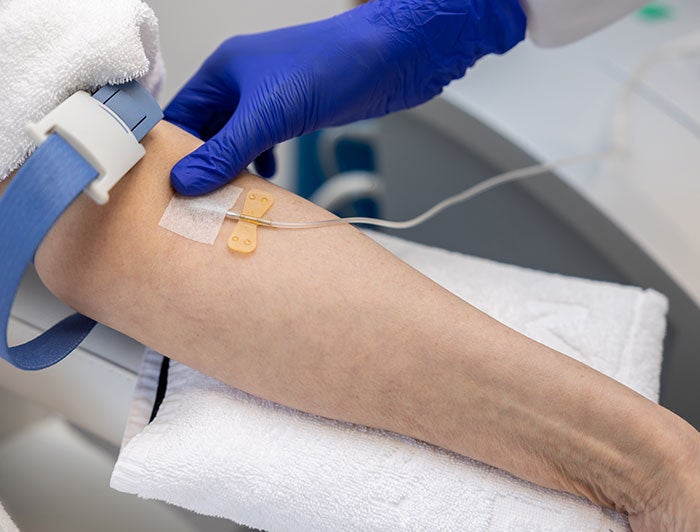Nebraska Medicine pioneers MS treatment at Buffett Cancer Center
Nebraska Medicine
Omaha, Neb.

Nebraska Medicine has become the first medical center in the world to use allogeneic CAR T-cell therapy to treat multiple sclerosis (MS). The groundbreaking clinical trial, administered at the Fred & Pamela Buffett Cancer Center, involved Jan Janisch-Hanzlik, a 49-year-old patient whose worsening MS symptoms led her to seek care. Under the guidance of Rana Zabad, M.D., a neurologist and MS specialist, she received genetically engineered T-cells from a healthy donor designed to target and eliminate the immune cells responsible for MS-related inflammation and damage.
“This is a completely novel concept in MS therapy,” said Zabad. “We’ve never used allogeneic CAR T-cell therapy to target the immune cells responsible for driving inflammation and damage in the central nervous system. This trial is about pushing boundaries carefully and thoughtfully to explore what could be possible.”
The therapy, previously used to treat blood cancers, was administered by Matt Lunning, M.C., a hematologist/oncologist at the Buffett Cancer Center, who also led a successful CAR T-cell treatment for lupus last year.
Allogeneic CAR T-cell therapy offers a significant advantage over traditional autologous approaches, which requires harvesting and modifying a patient’s own cells. The allogeneic method uses donor cells that are genetically engineered and readily available “off-the-shelf,” streamlining the treatment process and expanding access to patients who may not be eligible for autologous therapy.

